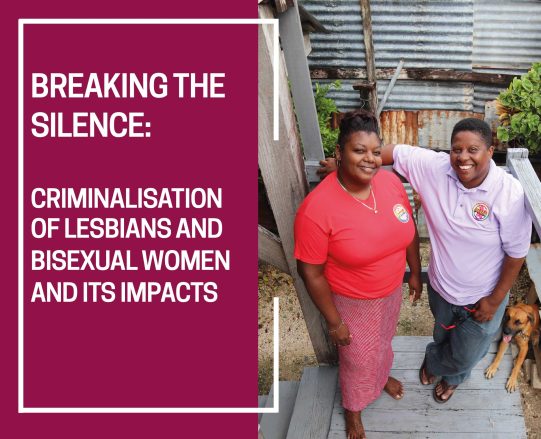![Nadan & McCoskar v State, High Court of Fiji at Suva, 26 August 2005. [2005] FJHC 500](https://www.humandignitytrust.org/wp-content/uploads/2019/02/McCoskar-v-The-State-2005.png)
Nadan & McCoskar v State, High Court of Fiji at Suva, 26 August 2005. [2005] FJHC 500
Judgment of the High Court of Fiji finding that appellant's human rights were infringed upon, and that criminalisation of same-sex activity between consenting adults by the Fijian Penal Code was unconstitutional.
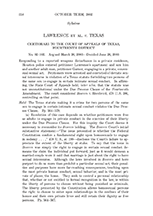
Lawrence v Texas, 539 U.S. 558 (2003)
The US Supreme Court declared unconstitutional a Texas law that prohibited sexual acts between individuals of the same sex. Justice Anthony Kennedy, writing for the majority, held that the right to privacy protects a right for adults to engage in private, consensual homosexual activity. The judgments of the Supreme Court being authoritative in all states, this judgment effectively decriminalised same-sex activity across the United States in 2003.
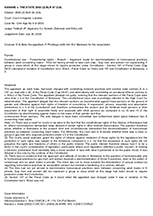
Kanane v State, Court of Appeal, 2003 (2), BLR
Judgment of the Court of Appeal at Lobatse, Botswana, found that a 1998 amendment making Section 167 of the Penal Code gender neutral rectified the previously discriminatory male-only provision criminalising same-sex activity between men. The Court held in favour of the state to retain criminalisation of same-sex activity in Botswana under Sections 164(c) and 167 of the Penal Code and that they were not in violation of the Constitution.
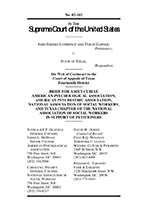
American Psychological Association, Brief for Amici Curiae, Lawrence v. Texas (January 2003)
Brief of the American Psychological Association in support of the claimants in the case Lawrence v Texas to decriminalise same-sex activity between consenting adults in private across the United States.
![Banana v State, Supreme Court of Zimbabwe, [2000] 4 LRC 621](https://www.humandignitytrust.org/wp-content/uploads/2019/02/Banana-v-State-Supreme-Court-of-Zimbabwe-2000.png)
Banana v State, Supreme Court of Zimbabwe, [2000] 4 LRC 621
Judgment of the Supreme Court of Zimbabwe ruling that 'gender' does not cover sexual orientation and that criminalising sodomy is constitutional. The court had to decide whether the common law crime of sodomy was in conformity with Section 23 of the Constitution of Zimbabwe which guaranteed protection against discrimination on the ground of gender.
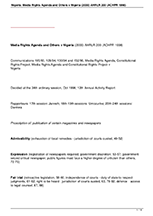
Amnesty International v Zambia (2000) AHRLR 325 (ACHPR 1999)
The case concerned the unlawful deportation of prominent political figures from Zambia finding violations of the complainant's rights. In its decision the African Commission on Human & Peoples’ Rights discussed the legitimate use of limitations to the provisions in the African Charter of Human and Peoples’ Rights.

